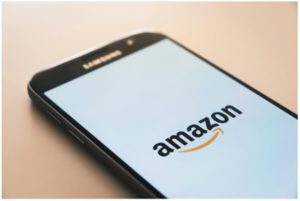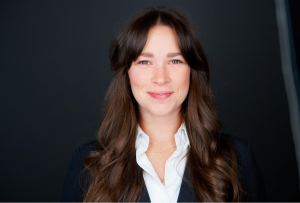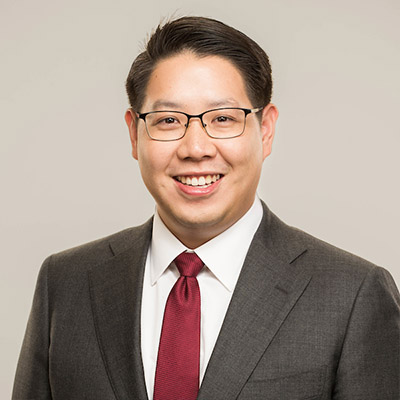Eric Liu is a class of 2019 Loyola U. Chicago School of Law graduate who pursued IP law immediately upon graduation. He has a background in Biomedical Engineering that he built upon by working at Cardinal Health and the U.S. Patent Office. During law school, he worked as a Judicial Extern for the Northern District of Illinois. Following graduation, Eric worked as an IP Associate at Finnegan before accepting his current position as Products Counsel at Amazon. His current position still involves intellectual property, but also includes contracts, antitrust and data privacy. While much of his work surrounds issues for established products, his data privacy work also focuses on the launch of new products and features.
From Petri Dishes to Prime: Eric Liu’s Unexpected Journey to Amazon’s Legal Team
Ever wonder what happens when you mix a dash of biomedical engineering with a sprinkle of legal prowess? Meet Eric Liu, the man who traded in his pipettes for a position on Amazon‘s legal team. His story is a testament to the power of curiosity, adaptability, and the courage to pursue unexpected opportunities. After speaking with Eric, I am excited to share what I learned about him and his journey.
The following is an edited version of our conversation with brackets to indicate my own words that further explain some legal/IP terminology for those who may be less familiar.
How did you become interested in law?
My journey began with a dream of becoming the next “Tony Stark” [the Iron Man character in the Marvel universe known for his incredible inventions]. I had visions of patents and groundbreaking inventions in biomedical engineering. During undergrad, I completed a capstone project. I was disappointed that during the project, my attempts at acquiring a patent were not getting appropriate levels of attention from outside counsel [firms hired to do specific work for the company or university, as opposed to attorneys within the company or university]. And from these unsuccessful attempts, I found myself fascinated by the legal side of innovation as a necessary pillar that supports the technical work.
I took a job as a patent examiner [an employee of the USPTO who reviews the patentability of patent applications] after graduation. That’s when things really started to click. An unexpected run-in with the Chief IP Counsel [the in-house attorney in charge of all IP] at Cardinal Health on a commuter train was the final push I needed.
Before I knew it, I was trading in my lab coat for law books.
What was the transition to law school like?
I thought biomedical engineering was tough, but law school? That was a whole different ball game. The Socratic method [where professors question individual students] was one of the greatest hurdles to overcome. But as the first semester went on, I appreciated the learning curve. And while the competitive nature of law school did add substantial stress, I found fellow classmates and professors who supported me throughout the process.
Turns out, my engineering background was a secret weapon. Law school teaches you to think BIG PICTURE and apply what you learn. My analytical skills I had developed from engineering continued to grow and facilitate my learning during this transition.
Tell me about your experience in a law firm.

As a new graduate of Loyola in 2019, I was ready to take on the world. Fortunately for me, I landed a position at an IP boutique firm [a firm focused solely on IP, as opposed to all areas of law], Finnegan.
There, I explored both patent prosecution [drafting of patent applications and responding to the patent office about applications] and patent litigation. Like many students, I had my sights set on Big Law [very large firms, defined by the number of lawyers, size of revenue and number of offices]. But as I learned more, I knew that the firm lifestyle with high number of required billable hourslikely wasn’t conducive to the lifestyle I wanted.
Nevertheless, I learned so much in my law firm experience. I even had the opportunity to negotiate against partners at a large law firm acting as opposing counsel. This happened over the course of numerous meet and confers [where parties hold general meetings to negotiate motions and discuss other points of conflict prior to any motions being heard by the judge]. I learned that I could get the experience and work I wanted at an IP boutique to develop a long-lasting career.
So, how did you end up at Amazon?
Well, many firms and attorneys told me to wait 5-7 years before even thinking about in-house [working within a company essentially with the company as a single client]. This is because of the opportunity for in-depth training at a firm. But I didn’t let that stop me from taking a chance.
I heard Amazon was looking for junior attorneys to fill openings at its newly opened HQ2 in Arlington, VA. I saw my chance and took it. After 3 years at Finnegan, I decided that I wanted to expand my skills beyond IP and touch more areas of law. Having experience in IP while taking a wide range of courses during law school prepared me for the vast variety of issues I would encounter at Amazon.
Biggest advice there… take as many different classes as you can during law school. You never know where and when you might need it. I was able to diversify my skills early in law school in preparation for in-house by taking classes like business organizations, federal income tax, data privacy and many more.
What’s your role at Amazon like?

As in-house counsel, every day is different. One minute I’m in a high-level meeting discussing the next big Amazon feature for one of my teams. The next I’m deep-diving into GDPR compliance [European Union regulations for handling privacy and data]. I specifically work within products counsel, focusing on every legal aspect of my assigned product teams. This includes issue-spotting a wide range of areas including data privacy, data architecture, generative AI configurations, contract/business negotiation, and even antitrust.
Many of the questions I think about as counsel involve Amazon’s new features or products:
- What does the customer click on?
- Is the web page set up correctly so that the customer’s account in the region makes sense?
- Where are customers based out of?
- Do they know how their data is being processed?
Working through questions like these are key to spotting potential issues. This has helped me develop the trust and respect of business and legal leadership at a large corporation like Amazon.
How do you feel about your move to an in-house role?
It’s been fantastic. I’m much closer to the business side of things now, which I love. I get to shape leadership decisions in a way I never could at a law firm. And the work-life balance? It’s been pretty great.
Sure, going in-house might mean a pay cut for some. But for me, the benefits far outweigh any downsides. I’m comfortable, I’m challenged, and I have more time to enjoy life outside of work. What more could I ask for?
How has your STEM background helped in your current role?
You’d be surprised how often I draw on my engineering mindset. While I’m not directly using my biomedical engineering knowledge, those problem-solving skills are invaluable. I even find myself applying engineering concepts like Failure Mode and Effects Analysis [systematic method for identifying potential failures in a product or process design]. This helps my teams come up with creative technical and business solutions. It’s all about thinking outside the box.
Any advice for STEM graduates considering law?
Don’t let fear hold you back. Be curious, ask questions, and be open to opportunities that might seem out of left field. Your STEM background gives you a unique perspective – use it!
Remember, your career path doesn’t have to be a straight line. Mine certainly wasn’t. But every twist and turn has led me to where I am now. And I wouldn’t change a thing. If there’s one thing I’ve learned, it’s that careers are full of surprises. So, stay open, stay curious, and who knows? You might just find yourself on an adventure you never expected.

Dasha Ignatova
Associate Blogger
Loyola University Chicago School of Law, JD 2026
